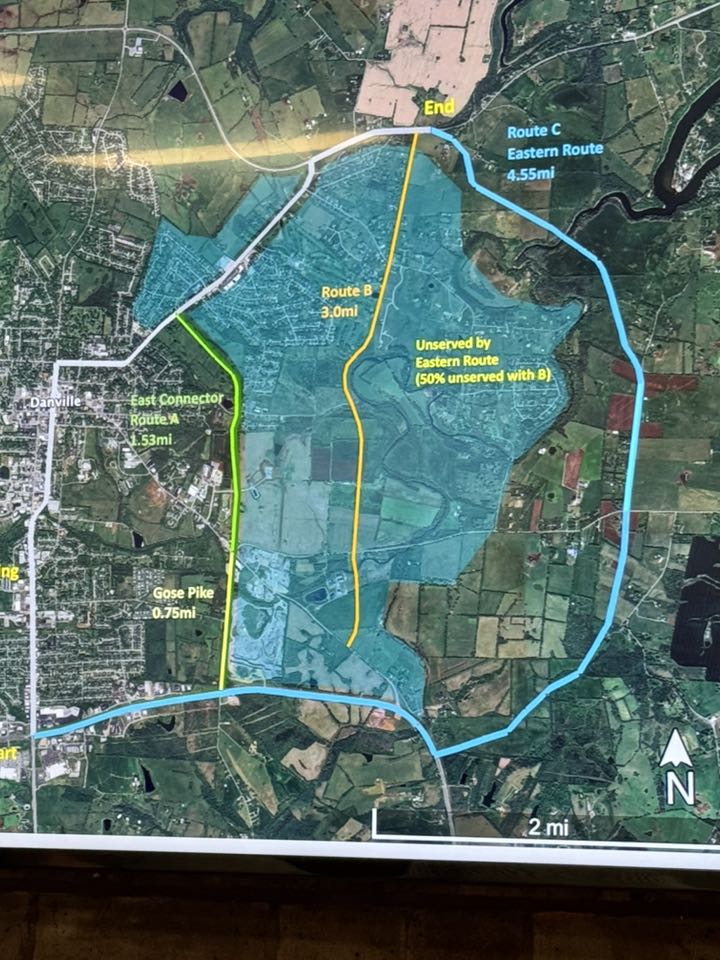Kentucky faces numerous environmental challenges
Published 1:13 pm Wednesday, May 22, 2019
By MARGARET GARDINER
Guest columnist
Lane Boldman, executive director of the Kentucky Conservation Committee (KCC), recently spotlighted “Kentucky’s Environmental Challenges” at an open meeting of The Women’s Network.
Trending
KCC is a bi-partisan advocate group for land conservation, bio-diversity, clean energy and sustainable communities. Its mission “is to be a trusted voice of the public effectively lobbying for protection, restoration and sustainable use of natural resources.” KCC seeks to educate the public about the way the health of families, communities and the economy depends on the conservation of natural resources. As well, it develops conservation policy and analyzes related bills proposed in the Kentucky Legislature.
Boldman started with the results of the 2019 short session of the General Assembly. Some gains for conservation included bills to clean up orphaned gas and oil wells and bonds for improving state parks. A significant setback was the solar net metering bill (SB 100), which discourages and penalizes small solar businesses and those who have invested in their own solar panels. It allows large energy companies to buy households’ excess electricity at rates below what they charge customers. With the demise of coal, energy companies are struggling to find sources of revenue and invested heavily in lobbying legislators. After fighting it down in 2018, SB 100 squeaked through at the very end of the 2019 session.
Boldman then turned to energy issues that centrally concern conservation advocates. To reduce the impact of fossil fuels on climate change, the need is to move from highly polluting technologies to renewables. Kentucky is well positioned to foster solar energy, and already renewables employ more people than the declining coal industry. Boldman pointed out, though, that big corporations are substituting natural gas, another fossil fuel, for coal, and some are looking to massively invest in the infrastructure of fracking. This will produce more pollution and degradation of the environment and directly affect the same Appalachian communities that have not recovered from the excesses of coal extraction.
Large investment in natural gas instead of renewables could create a middle stage of energy over-development that produces similar chemical pollution. And fracking profits, as with coal, do not stay in Kentucky — but the environmental degradation does.
Another key aspect of conservation, Boldman explained, is land use. Although concern about climate change mainly focuses on reducing dependence on fossil fuels, in fact forests, grasslands and wetlands can produce up to 37 percent of needed emissions reductions. Forests need protecting, and reforestation of abandoned mine lands and other vacant land can sequester more carbon. Tax incentives can have a role in incentivizing private landowners to do their part.
A further objective of sound land use is creating forested wildlife and plant corridors. Providing migration pathways is important to preserve biodiversity. In 1990, Kentucky recognized this need and set up the Heritage Land Conservation Fund to purchase and manage natural areas.
Trending
Unfortunately, the Legislature has seen this as a source of extra funds. It has “swept” $10 million dollars out of this fund into the general budget in 2016 and an extra $5 million in 2018. While this is peanuts in the general budget, it depletes a strategic resource for conservation and should be stopped in 2020.
Water conservation policies and issues are also a key focus of the Kentucky Conservation Commission. First, Boldman discussed the pollution of rivers and groundwater. Although local concern is focused on pollution hazards from the run-off of dangerous chemicals from coal ash ponds to Herrington Lake, coal ash pollution is also a national and regional problem. Kentucky alone has 13 ash pond sites and the Ohio River is badly polluted.
Secondly, good water conservation requires watershed policy to control stormwater and avoid flooding. Wetlands need protecting to mitigate flooding problems caused by the increasingly frequent extreme storms associated with climate change. In addition, technologies like permeable paving in urban areas help better manage run-off.
Water infrastructure is a third area that needs attention, as many systems are aging and failing. The most extreme example is Martin County, where drinking water is contaminated and half the water supply is lost through leaking pipes. Managing sources of drinking water and dealing with wastewater in a smart way is increasingly critical, too.
Environmental challenges do not end there. Invasive species like asian carp, wild pigs and the emerald ash borer intrude on native species and disrupt natural eco-systems. Endangered species and essential pollinators need continued protection. Boldman suggested following their website www.kyconservation.org, especially during legislative sessions.
Finally, Boldman stressed how important it is for citizens to bring their environmental concerns to Frankfort. The Kentucky Conservation Committee and its allies are badly outnumbered by corporate lobbyists. Part of KCC’s role is to help citizens make their voices heard by state departments and politicians for the preservation of the health, safety and long-term economic viability of their communities.
Margaret Gardiner is chair of the Boyle County chapter of The Women’s Network. She lives in Danville.






